CITY OF FREDERICTON MIGHT BAIL OUT FROM VOUCHER PROGRAM????
Just heard a story from Michael Stweart from CBC that it might be shut down?
This program help a lot of people and it would be a darn shame.
If the City backs down from funding this program? This will be a huge step backward for this area.
The City can't afford $5,000???
SHAME ...SHAME...SHAME!!!
Here's a blog I wrote about this issue -
These pictures were taken in May when the City announced help was coming for the panhandlers in this City.
I might add that this campaign not only help the panhandlers but the people who only makes 300 bucks per month,
They work little jobs here and there therefore affording a little extra.
 IMG_7198
IMG_7198
Originally uploaded by Oldmaison 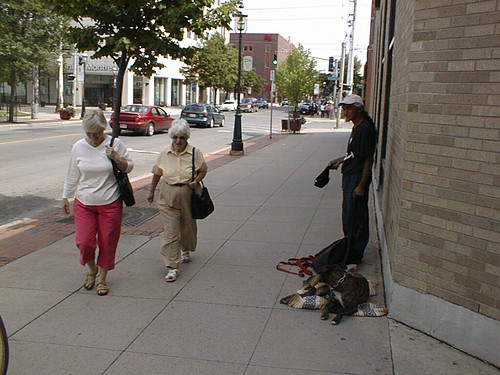
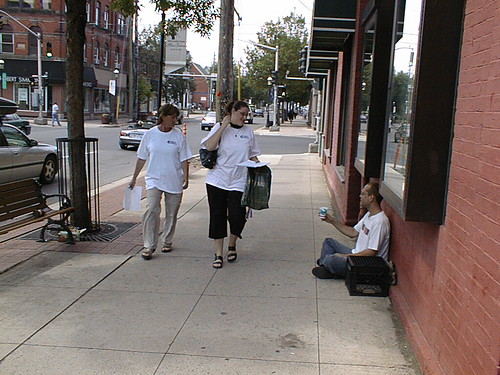
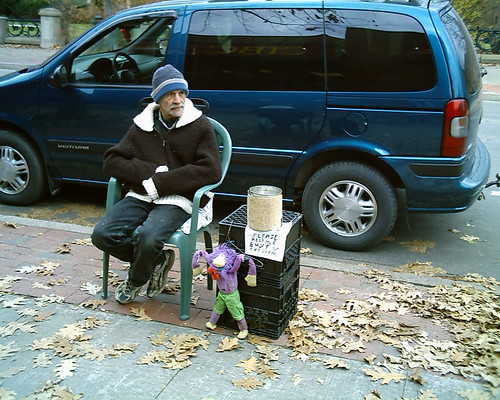
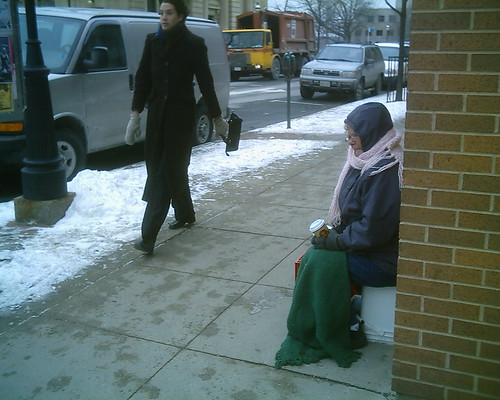
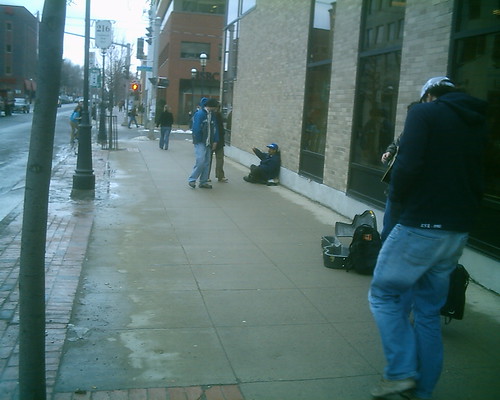
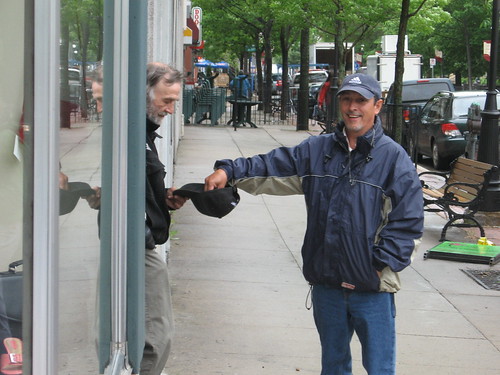
These pictures were taken in May when the City announced help was coming for the panhandlers in this City.
I might add that this campaign not only help the panhandlers but the people who only makes 300 bucks per month,
They work little jobs here and there therefore affording a little extra.








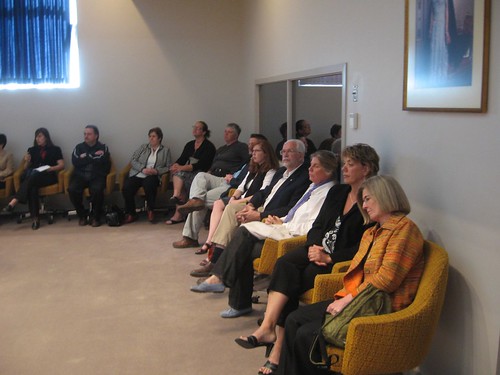


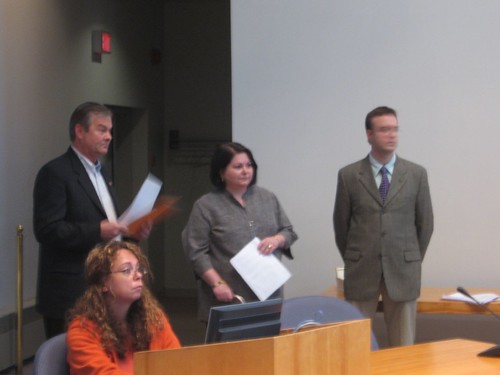

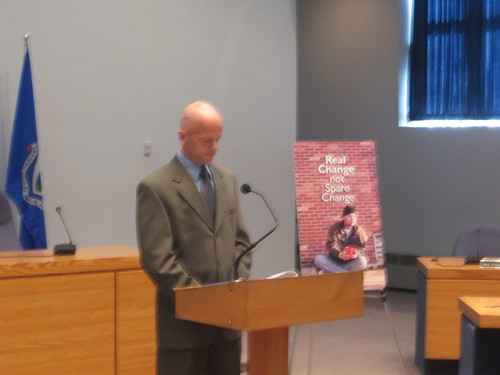
One City official handed me this piece of paper. It's a media release and it was nice for the guy to recognize me as a media tool....lol...
City Voucher Campaign Providing Opportunities
Fredericton (September 6, 2007) - Organizers and sponsors of the City Voucher Campaign held a barbecue at City Hall today to celebrate the pilot program's success this summer in providing an alternative to panhandling on downtown streets.
"Relationships, confidence, responsibility…they are all pieces of the City Voucher Campaign," said Mayor Brad Woodside. "I encourage all downtown merchants to consider participation because there are real mutual benefits of becoming involved. You can see the difference the campaign is making on the faces of the disadvantaged people who are participating."
The City Voucher Campaign was created to give panhandlers a chance to work at odd jobs for downtown merchants in exchange for vouchers redeemable at participating stores. It is designed to put extra cash into the pockets of those who need it, while at the same time building necessary relationships between the downtown businesses and panhandlers.
"We had a very successful summer with eight businesses and 13 participants, said Mavis Doucette, of the Community Planning Group and coordinator of the City Voucher Campaign. "Over the summer I have seen a growth in friendship and respect from both sides of the program."
The City Voucher Campaign is an initiative of the Community Planning Group, an umbrella organization of 32 community service providers, government departments and community members whose goal is to address issues around homelessness and to improve the health and security of persons at risk because of homelessness or near homelessness.
The program was funded by the Fredericton Community Foundation and Atlas Van Lines Canada. It was co-sponsored by the Community Planning Group, Downtown Fredericton Inc. and the City of Fredericton. Organizers havefunding for another month and will be looking to raise more funds in the near future to continue with the campaign.
"We may not realize it but the simple act of earning to buy necessities can be a self esteem builder for our clients." said Doucette. "One of our participants is saving up vouchers to go and purchase all of their groceries at once… a luxury they have never had before."
These pictures were taken today at Fredericton City Hall! Everyone had a good time!!!

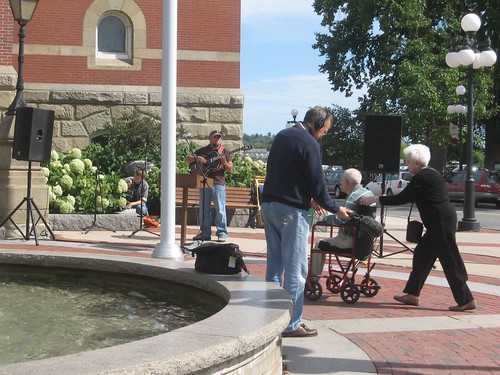



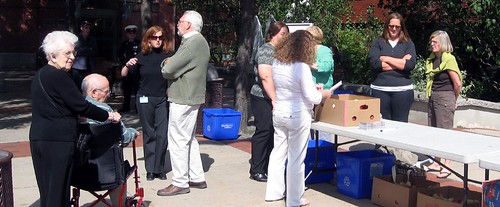


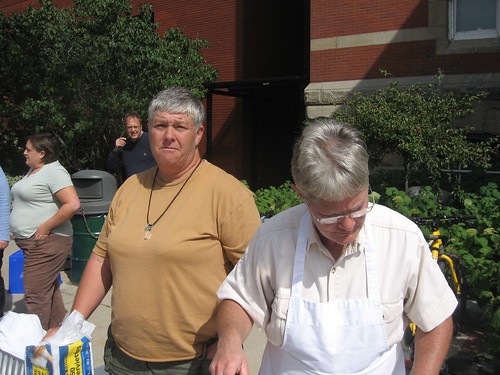

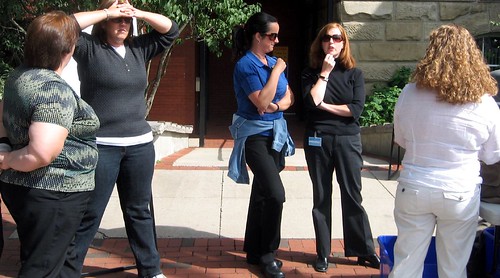
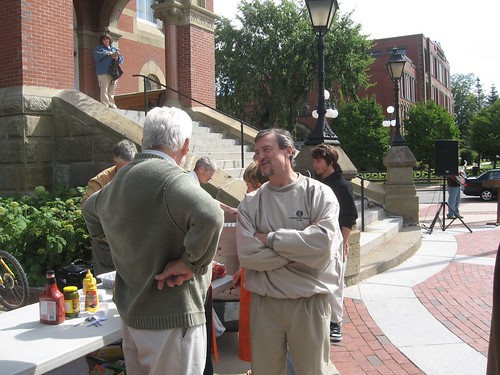


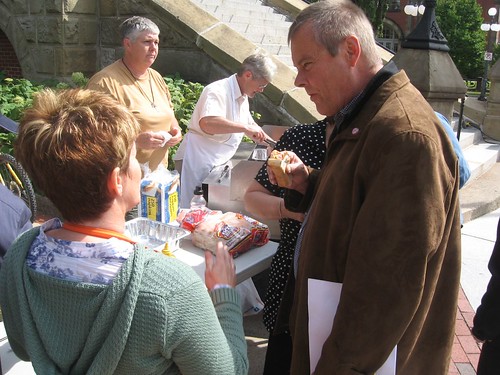

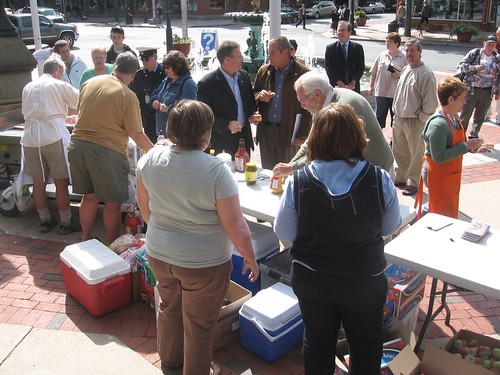

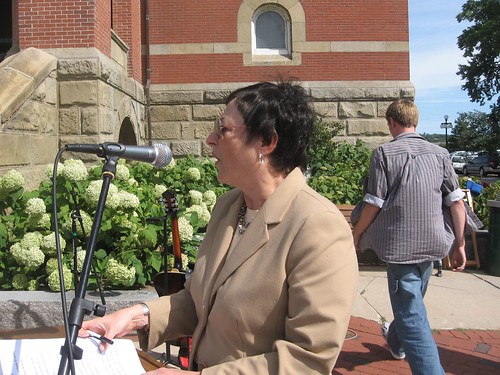

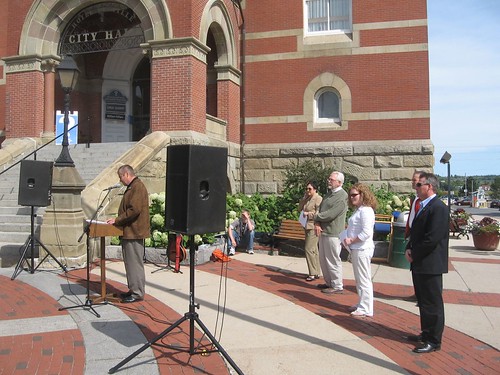

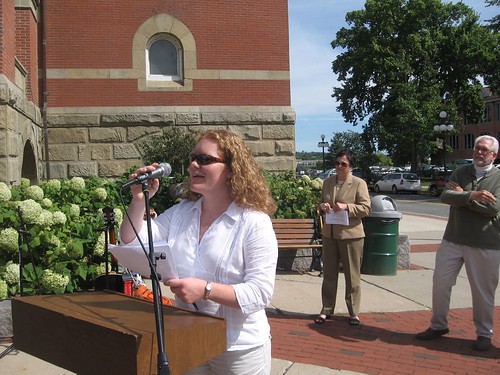
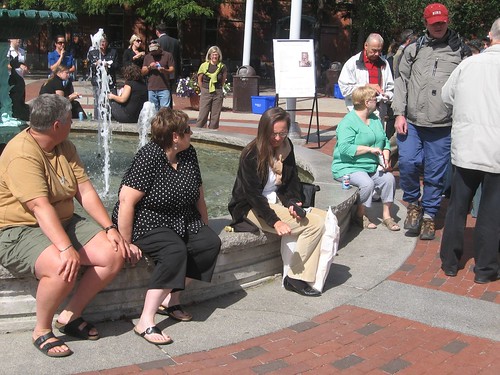

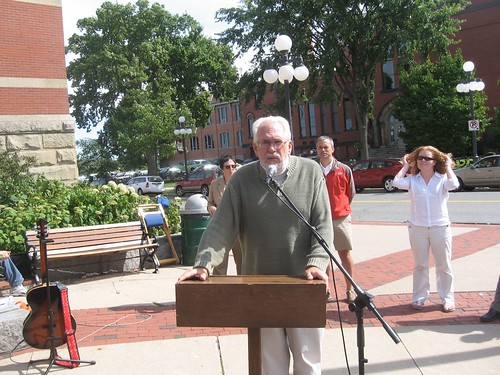




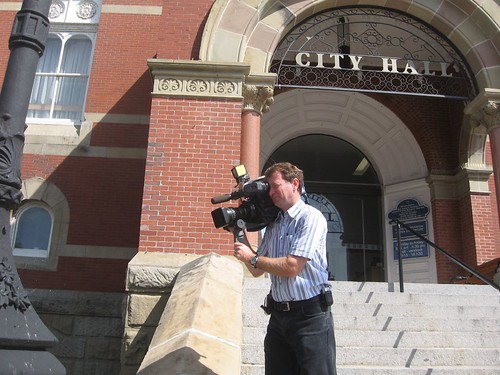
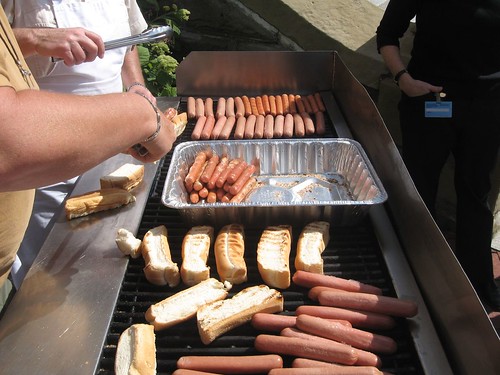

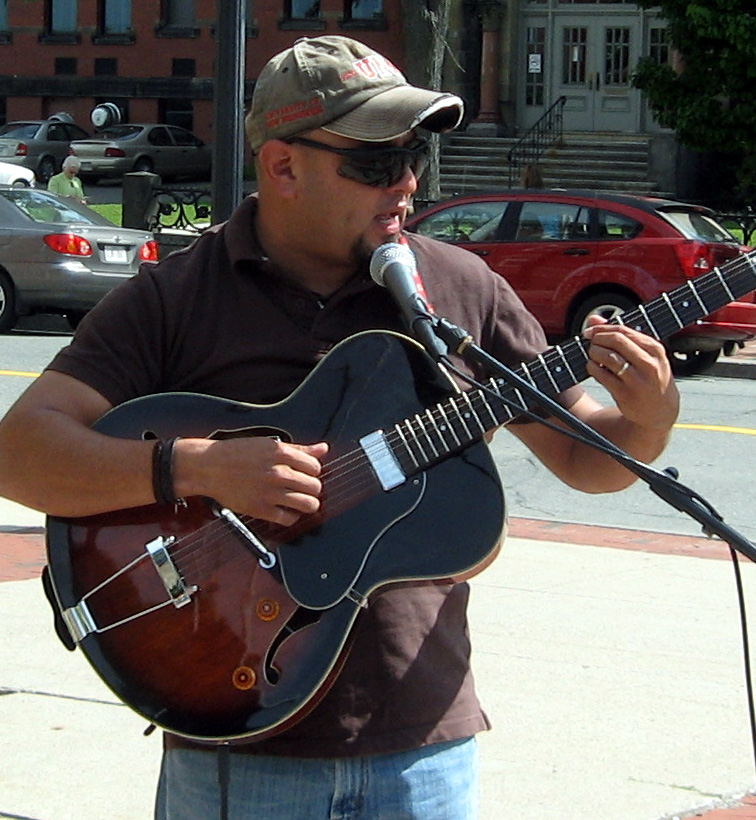

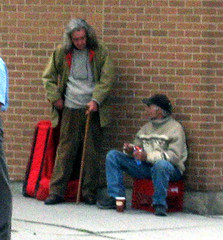



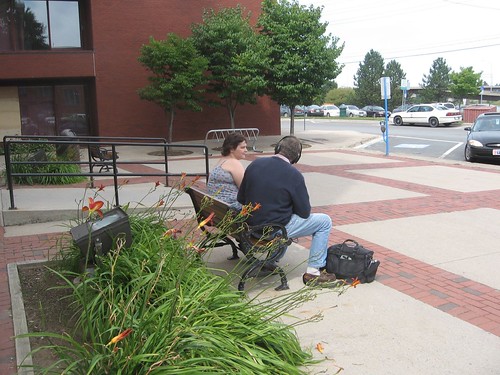

 IMG_7198
IMG_7198
Originally uploaded by Oldmaison 
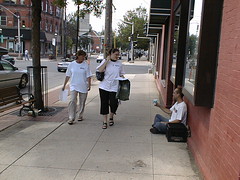





























































2 comments:
An internal RCMP report obtained by CBC News shows 80 people died while in police custody between 2002 to 2006, the majority due to alcohol intoxication or drug overdoses.
'The leading cause of death was alcohol or drug overdose.'
— RCMP internal reportThe 100-page report, written in December 2007, is the RCMP's most comprehensive analysis of in-custody deaths and presents statistics ranging from the reason police got involved in the first place to where the death occurred.
"The majority of subjects died at the scene of a complaint, which was most commonly a disturbance or drunk in public place call, or in a hospital within 30 minutes of initial contact with the police," the report says.
"The leading cause of death was alcohol or drug overdose."
Of the 80 people who died in police custody, most were men over the age of 30 who had been using drugs or alcohol and had a criminal record.
The report's author, a staff sergeant with national criminal operations, called the report "good news for the RCMP," because in 2006 none of the 15 deaths could have been prevented, as those people had put themselves in situations where "their decisions resulted in their deaths."
However, the report's assessment brings little comfort to Linda Bush of Houston, B.C. On Oct. 29, 2005, rookie Const. Paul Koester shot her son, Ian, in the back of the head while he was in police custody at the RCMP detachment in Houston.
Bush, a 22-year-old sawmill worker, was arrested for having an open beer outside a hockey game and for giving a false name to police. He was taken to the local police detachment where he died 20 minutes later.
'I see this report perhaps as an attempt by the RCMP to fend off the critics.'
— Vancouver lawyer Cameron Ward"I think the RCMP are making some wrong choices in excusing themselves here and not making more of an effort to change what's happening," Linda Bush told CBC News.
Vancouver lawyer Cameron Ward, who has represented a number of families whose relatives died in police custody, said the RCMP report is flawed because it only focuses on the victims and does not take into account the age of the officers involved or their experience with the force.
"I see this report perhaps as an attempt by the RCMP to fend off the critics and those who say that a higher level of civilian oversight and civilian investigation in these cases is necessary," Ward said.
Tom Engel, an Alberta lawyer who represents families of people who have died in police custody, also has doubts about the validity of the report.
"[It's] just so superficial. It's useless," Engel said. "Something like this to me can only be useful to the RCMP in terms of public relations."
B.C. in-custody deaths disproportionate: lawyer
Ward said while British Columbia is home to a third of the RCMP members in Canada, it's the source of more than half of all in-custody deaths.
"We've got a death rate here in B.C that's about twice as high as it ought to be statistically," he said.
The RCMP declined an interview request by CBC News, but in a written reply noted that B.C.'s in-custody death rate is due to the fact that police work is more urban in the western province compared to other provinces.
"The type of police work in B.C. is heavily urban-focused, compared to the predominantly rural policing that goes on in the other provinces in RCMP jurisdiction," Sgt. Sylvie Tremblay, an RCMP spokeswoman from Ottawa, said in her written reply.
"Crime is logically more pronounced in urban centres than in rural areas. The majority of the deaths were related to high-risk lifestyles involving alcohol and drugs," she said.
The report said the RCMP will continue to examine the circumstances of each in-custody death.
"The aim is to learn whether the acts or omissions, if any, of its members or the equipment/facilities and procedures played any role in the incident," says the report.
"The RCMP finds itself in a difficult position of dealing with intoxicated or stoned individuals," the report concludes.
"Hospitals are generally reluctant to admit persons until and unless there are definite symptoms of toxicity that would necessitate medical intervention."
These (backward,haha)boys,won't be back from,vancouver or down south for a while yet.
Life is fun
Post a Comment